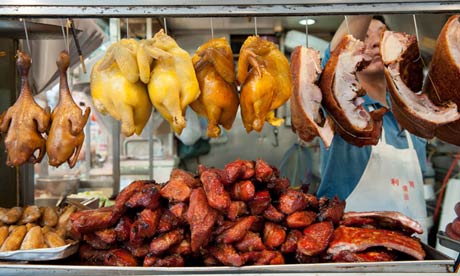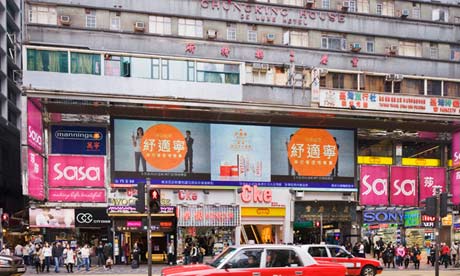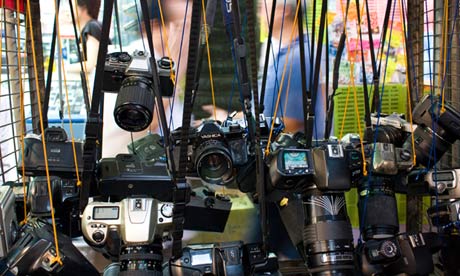There used to be hundreds of dai pai dong eateries on the streets of Hong Kong, but these days, only a handful of these distinctive green-painted food stalls are left. Most are in the gritty neighbourhood of Sham Shui Po, home to working-class locals and migrants from mainland China, south Asia and Africa. Keung Kee is one of the best, drawing both neighbourhood residents and people from across Hong Kong (more about it via Hong Kong travel guide), who come for fresh seafood (kept alive in tanks on the street) and the comforting roar of the wok. Join the crowd around fold-up tables and feast on Hainan chicken and stir-fried clams, washing it all down with ice-cold bottles of lager.

One-Eyed Man's Cooling Tea
Chinese medicine is very much concerned with chi, the body's internal balance, and when you've had too many greasy, beer-soaked dinners – which you will, if you're doing a proper job for your Hong Kong tours – you could very well become yit hei, or "heaty," which causes bad skin, heartburn and any number of other ailments. The cure is leung cha, or cooling tea, which you can find at One-Eyed Man's Cooling Tea, a stall on Temple Street named after the original owner, one of whose eyes was larger than the other. There are sweet teas and bitter teas; both are dark in colour, brewed from a mysterious combination of herbs and dispensed from a trophy-shaped silver vessel into small porcelain bowls.
Nepalese whisky bar

Chungking Mansions is a hulking block of flats, guesthouses, curry houses and Bollywood DVD shops that is home to thousands of migrants and traders from south Asia and Africa. When its residents aren't busy making money, they relax at the Nepalese-run whisky stall out back, where you can buy a jigger of Seagram's whisky and Red Bull for 50p. The regulars are friendly.
Yen Chow Street hawker bazaar
From afar, it looks like a park, with a few mighty trees looming over the corner of Yen Chow Street and Lai Chi Kok Road, a rare bit of greenery in otherwise denuded Sham Shui Po. Walk closer and you'll notice a cluster of shacks beneath the foliage. It's not a shantytown – it's a ramshackle market dedicated entirely to fabric and trims. Leopard print? Lace? Lumberjack flannel? You'll find it all here, wandering between mountains of fabric rolls reaching up to the sheet-metal and tarp ceiling. You'll also find tailors, too, if your sewing skills aren't up to snuff. You can stroll along the street after visiting Hong Kong tourist attractions.
Vintage cameras on Apliu Street

When Ng Wai was a Chinese border guard in the 1970s, his job was to keep people inside China. Then he decided he wanted a better life, so he snuck across the border himself to British-controlled Hong Kong. He now runs a camera stall on shambolic Apliu Street, where market stalls packed full of electronic components sidle up to hawkers selling secondhand home appliances. The soft-spoken Ng, whose eyes constantly scan the crowds, has quite a range of cameras packed into his tiny metal stall, from broken 35mm point-and-shooters – favoured by Africans who buy them in bulk, fix them and sell them on the streets of Lagos and Nairobi – to well-preserved rangefinders, the kind of camera used by street photographers like Walker Evans and Henri Cartier-Bresson. You can by economic products for your Hong Kong's China tour deals.
No comments:
Post a Comment